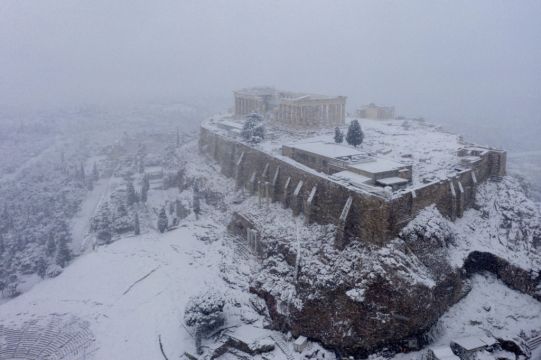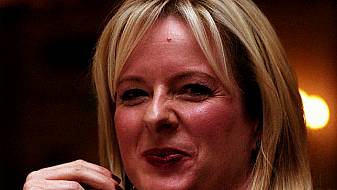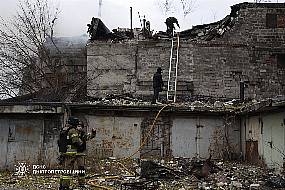Heavy snowfall has blanketed the Acropolis and other ancient monuments in Athens and halted Covid-19 vaccinations in the Greek capital as the weather brought many services across the country to a standstill.
The snow, an unusual sight in the city of more than three million residents, also stopped most public transport services, while toppled trees caused blackouts in several mountainside suburbs.
Snow is common in Greece’s mountains and in the north of the country, but much rarer in the capital, particularly heavy snow.

Some Athenians emerged cautiously outside, taking photos on balconies and in the streets.
The snow arrived as Athens and several other parts of Greece remain in lockdown to curb coronavirus infections.
Schools and most shops are closed, and residents must stay indoors during a nightly curfew.
Some children skipped online classes on Tuesday to play in the snow.

Adults also went out to play, with some digging out skis to use on the capital’s hilly slopes.
One man skied along Pnyx hill in central Athens, near the Acropolis.
Norwegian ambassador Frode Overland Andersen tweeted a video of himself skiing down a hill in the suburb of Filothei with his teenage daughter.
“Challenge accepted,” he wrote, after a friend in Oslo challenged him to prove it really was possible to ski in Athens.
Challenge accepted! Skiing ⛷ down Filothei hill #AthensSnowCapitol #NorwegianFun 🇳🇴🇬🇷 pic.twitter.com/HHiunx7DwJ
— Frode Overland Andersen (@norwayingreece) February 16, 2021
Advertisement
“It was the best day at my home office during the lockdown so far,” the ambassador told the Associated Press.
“Sadly, my skis took a rather hard beating, so I will be waxing and prepping for next season.”
Outside the parliament building, orange-coloured snowploughs cleared streets of ice and snow, while presidential guards, dressed in traditional pleated kilts and pompom-tipped shoes, were given heavy woollen overcoats.
Sections of Greece’s main motorway were closed, most ferry services to the islands were cancelled, and flights from regional airports to Athens were disrupted.
Fire service spokesman Vassilis Vathrakoyiannis said the service had received more than 600 calls for assistance in greater Athens.

“The calls mainly concerned downed trees and transporting people stuck in their vehicles to a safe place, but also to transport kidney dialysis patients to receive treatment,” he told state TV.
“Vaccinations have been postponed, but we have helped transport doctors and medical staff where they are needed, and we helped power technicians get to damaged electricity pylons in areas where access was difficult,” Vathrakoyiannis said.
Power and water cuts were also reported in central Greece.
Prime Minister Kyriakos Mitsotakis met emergency response leaders to assist residents in blacked-out areas and villages cut off by the snow.
“We obviously recommend great care be taken in all movement, all unnecessary movement should be avoided,” Mr Mitsotakis said after the meeting, adding that authorities were doing everything they could to keep the roads open and to restore power to areas without electricity.

“I think we will all show patience as we deal with a phenomenon that is truly unprecedented,” he added.
The cold snap, which has already caused snowstorms around much of Europe, kept temperatures hovering around freezing in Athens on Tuesday but was expected to lift abruptly, with highs of 14C expected on Thursday.







